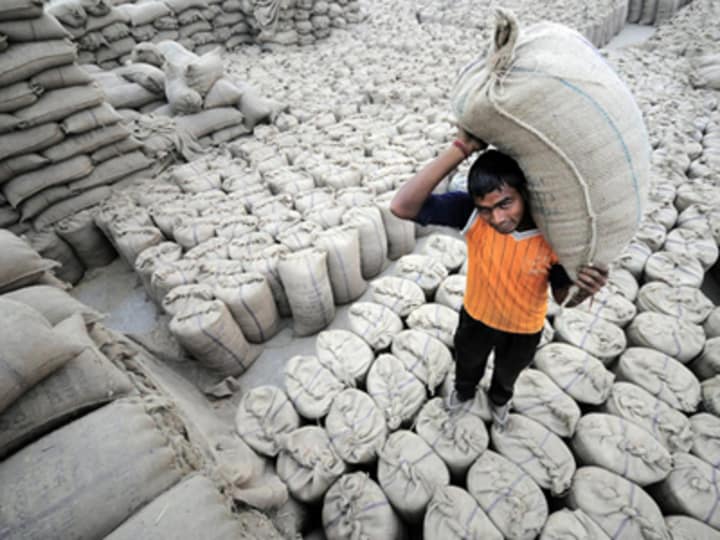
The world’s most ambitious program to fight hunger cleared its first parliamentary hurdle this week in India. After years of politicking, the Indian parliament this week took an important step when its lower house approved the Food Security Bill, an important milestone in the world’s fight against hunger. To legislate food as a right for every citizen in a country is a bold step for our nation, and with 810 million people expected to benefit from the biggest program in the world to fight hunger, we hope that no child will ever go to bed hungry again.
This bill is a great opportunity to move from responding to hunger to addressing malnutrition.
In one of the 5,300 communities World Vision serves in India, three-year-old Sandhya was born severely malnourished to a mother who herself was malnourished. She could very well be what the prime minister refers to repeatedly as “national shame.” Sandhya’s family not only faced the shame of malnutrition but also intentional marginalization, a double vulnerability. The most vulnerable communities, especially tribal communities, unjustly face the burden of malnutrition.
Very rightly the question was raised about the adequacy of India’s Public Distribution System to bear the load of this new program envisioned in the bill. The revamp of our PDS could gain from public–private coordination with civil society and the panchayats or local governing bodies. This way, the government brings in the food, civil society the social capital and companies their expertise on supply chain management, while the panchayats can oversee implementation.
Fighting malnutrition
The distribution system gives preferences to public institutions such as the panchayats, self-help groups or cooperatives in licensing of fair price shops by women or their collective, a very effective method.
In our work with the Santhal tribal communities in Jharkhand state we have seen the benefits of community management of PDS. We have observed that the most deserving people are not left out and families receive their food on time without any delay and a regular supply. The level of malnutrition among children in these villages is comparatively lesser as people are aware of their roles and help to make public services work.
An important purpose of the bill is “to provide for food and nutritional security in human life cycle approach” and thus address the larger issue of malnutrition more effectively. We have learnt from our experience in the nation that self-help groups and mothers themselves can be great gatekeepers for village-level child services, ensuring this bill truly benefits pregnant women, lactating mothers, children below the age of 6 and malnourished youths.
As for universal coverage, the bill hopes to cover 810 million people. We need to ensure that the most poor and vulnerable are not left out. The Musahar community in Bihar — one of the most marginalized communities served by World Vision in India — is still fighting for their Below Poverty Line card. Officials have refused to give people there a BPL card because they are “dressed well” and did not look like they are living below the poverty line. With the Food Security Bill being designed to function within these systems, the guarantee of food security to every citizen could become blurred.
A right to live to the fullest
Every Indian has to be free from hunger and malnutrition.
But it is an issue of right for those whom food is scarce. It is a luxury for about 500 million people — almost a third of the population — who live on less than $1.25 a day. These millions are tossed between hunger, malnutrition, food scarcity and migration, taking from the poor, especially children, their basic right to live.
Sandhya could easily have been one of the 5,000 children under the age of 5 who die every day in India. And if she does survive her 5th birthday, the brain damage caused by malnutrition will reduce her to living a life as a second-class citizen in her own country.
The government has to be commended for giving the nation this very important right — a law that will ensure that children like Sandhya have a right to live their lives to the fullest.
Join the Devex communityand gain access to more in-depth analysis, breaking news and business advice — and a host of other services — on international development, humanitarian aid and global health.



